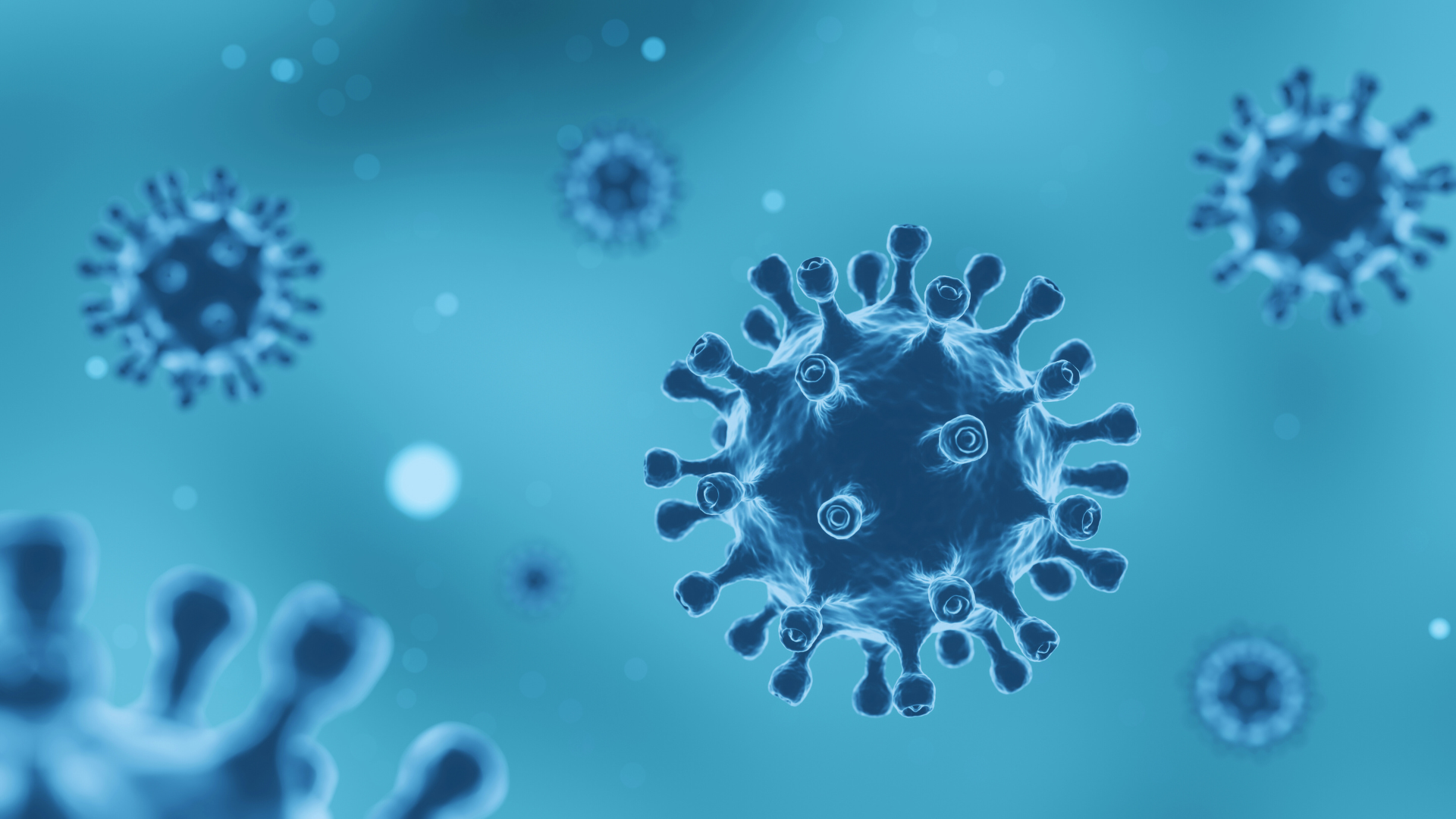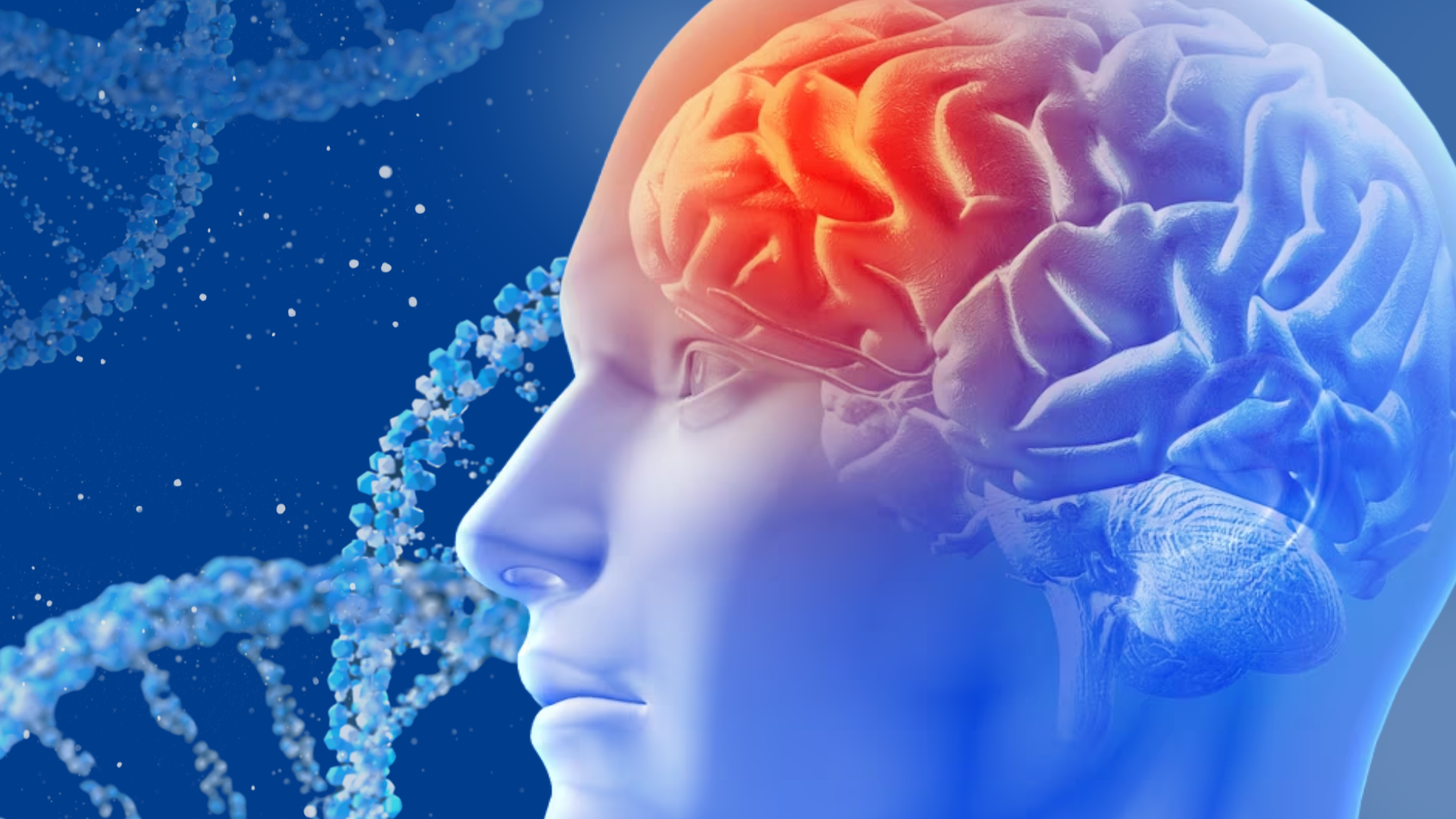Epstein-Barr virus (EBV) affects approximately 90% of the global population, yet many don’t realize it can cause serious neurological complications. From brain fog to neuropathy, EBV-related neurological symptoms are often misdiagnosed. This 2025 guide explains the neurology behind EBV and evidence-based management strategies.
In this blog post, we will focus on the impact of EBV on the nervous system, specifically the range of neurological symptoms it can cause. We will also explore the mechanisms of how EBV affects the nervous system and how to manage and prevent them. If you or someone you know has been diagnosed with EBV, this article will provide you with essential information to help manage the associated neurological symptoms and promote overall health and well-being.
What is the Epstein-Barr virus?

What Are the Neurological Symptoms of Epstein-Barr Virus?
EBV can lead to different neurological manifestations in individuals, ranging from mild to extreme. The most prevalent symptoms are headaches, dizziness, fatigue, and cognitive impairment. Besides these, the virus may also cause serious conditions such as encephalitis and multiple sclerosis.
Encephalitis is a rare but acute EBV infection complication affecting the brain. This condition can cause symptoms such as fever, confusion, seizures, and loss of consciousness. Encephalitis can be life-threatening and requires immediate medical attention.
Multiple sclerosis (MS) is an autoimmune disorder that affects the central nervous system. Although medical experts are unsure of the exact cause of MS, they believe that EBV may contribute to its development. Studies have shown that people infected with EBV are more likely to develop MS.
EBV can cause a wide range of neurological symptoms that affect your brain, spinal cord, and nervous system. These symptoms can range from mild to severe and may develop during active infection or even years later.
Common Neurological Symptoms Include:
- Extreme fatigue – The most frequent symptom that can last for months
- Severe headaches – Often persistent and difficult to treat
- Dizziness and balance problems – Making daily activities challenging
- Cognitive impairment – Including memory problems, brain fog, and difficulty concentrating
- Sleep disorders – Disrupted sleep patterns and chronic insomnia
- Mood changes – including depression, anxiety, and emotional disturbances
Severe Neurological Conditions Caused by EBV:
- Encephalitis – Brain inflammation causing fever, confusion, and seizures
- Viral meningitis – Infection of the meninges and spinal cord membranes
- Multiple sclerosis – EBV may trigger this autoimmune condition
- Optic neuritis – Inflammation of the nerve connecting the eye to the brain
- Guillain-Barré syndrome – Immune system attacks the body’s nerves
- Facial nerve palsies – Loss of facial muscle control
- Transverse myelitis – Spinal cord inflammation
- Acute cerebellar ataxia – Loss of muscle coordination
- Hemiplegia – Paralysis on one side of the body
- Psychoses – Loss of touch with reality
EBV Neurological Symptoms Checklist
- Persistent brain fog or cognitive impairment
- Numbness or tingling in extremities
- Headaches or migraines
- Memory problems
- Tremors or weakness
- Mood changes or depression
- Sleep disturbances
How EBV Affects Your Nervous System
The virus can directly infect nerve cells and cause your immune system to attack healthy brain tissue. This happens through:
- Direct viral infection of nerve cells
- Autoimmune response, where your body attacks its own nervous system
- Chronic inflammation that damages nerve tissue over time
When to Seek Medical Help
Contact your healthcare provider immediately if you experience:
- Severe headaches with fever
- Confusion or memory loss
- Seizures or loss of consciousness
- Sudden weakness or paralysis
- Vision problems or double vision
- Difficulty speaking or swallowing
Recognizing Active Epstein-Barr Virus Infection
- Extreme fatigue
- Fever
- Sore throat
- Swollen lymph nodes
- Enlarged spleen
- Swollen liver
- Rash
- Stressors and emotional disturbances
- Autoimmune diseases, like Hashimoto’s thyroiditis
Who are at risk for developing neurological symptoms from the Epstein-Barr virus?

How does the virus spread?
Bodily fluid and saliva transmit the EBV from one individual to another. One of the most well-known EBV infections, mononucleosis, arises as a result.
Sharing personal items with a person who has active EBV infection, such as toothbrushes or dining utensils, is another way to contract the virus. Sexual contact, blood transfusions, or organ transplants can transmit EBV through blood and semen.
EBV becomes dormant and inactive in the body after the symptoms stop, and it might revive in the future. The carrier can infect others if the virus reactivates.
Mechanisms of EBV Neurological Symptoms
The exact mechanisms of how EBV affects the nervous system are not fully understood. However, research has shown that the virus can infect and replicate in different types of nerve cells. In addition, EBV can activate the immune system, leading to inflammation and nerve cell damage.
One possible mechanism of how EBV affects the nervous system is the production of autoantibodies. Autoantibodies are proteins produced by the immune system and can attack healthy cells. In some people, EBV infection can produce autoantibodies that target nerve cells, causing neurological symptoms.
What conditions are caused by EBV?
Viral meningitis
Optic neuritis
Optic neuritis occurs when the nerve becomes swollen or inflamed. The optic nerve carries image transmission from the eye to the brain.
Transverse myelitisThe spinal cord, which transmits impulses from the brain to the body’s nerves, is affected by transverse myelitis.
Facial nerve palsies
Guillain-Barré syndrome
Acute cerebellar ataxia
Hemiplegia
Sleep disorders
Psychoses
Losing touch with reality is the first sign of psychosis.
Diagnosis and Treatment
Diagnosing EBV neurological symptoms can be challenging, as the symptoms can be similar to those of other neurological conditions. Several examinations can be employed to analyze EBV infection and related neurological issues, such as blood tests, imaging procedures, and spinal taps.
Currently, there is no cure for EBV infection or the resulting neurological conditions. However, several methods to alleviate symptoms include rest, pain relievers, and anti-inflammatory medication. In some cases, antiviral drugs like acyclovir or valacyclovir may provide relief.

Prevention and Management
Preventing EBV infection can be challenging, as the virus is highly contagious and spreads through close contact with infected individuals. It is possible to take some preventive measures to lower the likelihood of contracting the infection. These steps include practicing good hygiene, avoiding close contact with infected individuals, and sharing personal items, such as utensils and towels.
Managing EBV neurological symptoms can be challenging, debilitating, and lasting for months or even years. However, several strategies can help address them. These strategies include getting plenty of rest, staying hydrated, eating a healthy diet, and avoiding alcohol and drugs.
What kills Epstein-Barr virus?
One of the most effective ways to kill EBV is to support the immune system. The immune system is the body’s natural defense against viruses and other pathogens. When it is strong and functioning properly, it can effectively kill off the virus and prevent it from causing complications.
Consuming a well-balanced diet high in whole grains, lean proteins, and fruits and vegetables is crucial to promote a robust immune system and adopting a healthy lifestyle. Nutrient-rich foods provide the body with the necessary vitamins and minerals to function properly and fight off infections.
Regular exercise can also help support the immune system by reducing stress and promoting overall health. Exercise helps to increase blood flow, which can help carry immune cells throughout the body to fight off infections.
Getting enough sleep and rest is also essential for supporting the immune system. Lack of sleep can weaken the immune system and make it more difficult for the body to fight infections.
In addition to supporting the immune system, several natural remedies can help kill EBV. These include:
Lysine: Lysine is an amino acid that inhibits the growth of EBV. Lysine supplements are readily available for oral consumption.
Lemon balm: Lemon balm is an herb that has antiviral properties and is effective in killing off EBV. Supplement or tea form is available for lemon balm.
Licorice root: Licorice root has antiviral properties and inhibits the growth of EBV. Licorice root is available in supplement or tea form.
OM Mushroom Master Blend: Boost your daily health with Om’s special Mushroom Master Blend. It has a selection of 10 organic mushroom powders handpicked by our expert mycologist. Our mushroom powder is made from whole foods, so you get all the natural active compounds. Additionally, included are 35% Beta Glucans standardized organic Reishi whole food extract and 3 organic botanical adaptogens — Ginkgo biloba for the brain, Holy Basil for antioxidants and anti-inflammation, and Astragalus for immune and energy support.
Echinacea: Echinacea is an herb with immune-boosting properties and effectively fights off viral infections such as EBV. Tea and supplements made from echinacea are available.
You may want to try the following supplements:
Daily Immune – is a dietary supplement that aims to provide enhanced immune defense support.
Biocidin Botanicals Biotonic – Daily Adaptogenic Elixir – Biotonic Daily Adaptogenic Elixir is a herbal formula that aims to enhance the effectiveness of Biocidin. It is inspired by two commonly used herbal formulas in Traditional Chinese Medicine that address digestive issues, fatigue, poor assimilation, and weak immune response that have been used for centuries.
Ascorbic Acid – is a powerful antioxidant and offers a wide range of support for the human body. It supports numerous physiological functions, including vascular integrity and immune function.
High-dose intravenous vitamin C is an effective treatment for infection with the Epstein-Barr virus. Dr. Truc Nguyen, an Integrative Functional Medicine Atlanta practitioner at Conscious Medicine, advises getting laboratory testing done before getting the drip.
*Please check with your healthcare provider before taking these.

When to See a Doctor
Seek medical attention if you experience: severe headaches, loss of consciousness, severe weakness, or symptoms worsening rapidly. Contact your doctor if EBV neurological symptoms persist beyond 6 weeks.
Harnessing Knowledge and Support for a Healthy Future
At Conscious Medicine, our process involves identifying all the factors contributing to a dysfunctional immune system in your life. Optimizing your body requires careful management, adapting, and changing factors until they best suit you and improve your health. The last step is to support your immune system, body, and you through this process. Lastly, we empower you with information and create a personalized long-term strategy.
The Epstein-Barr virus neurological symptoms can intensity from moderate to severe. You must consult a functional medicine practitioner for a complete diagnosis if you encounter any EBV symptoms. When treated and diagnosed early, many patients fully recover.
The neurological symptoms of EBV can vary significantly between individuals. Some people may experience only mild cognitive issues, while others may develop more severe complications. These symptoms can persist for weeks, months, or even years after the initial infection.
It’s crucial to work with healthcare providers who understand the complex relationship between EBV and neurological symptoms.
FAQ’s
1. Can Epstein-Barr virus cause neurological symptoms?
Yes. While EBV primarily causes infectious mononucleosis (“mono”), it can occasionally affect the nervous system. Neurological symptoms are rare but possible, especially in severe or prolonged infections.
2. What are the neurological symptoms of mononucleosis?
Neurological symptoms can include:
-
Headaches
-
Confusion or difficulty concentrating
-
Dizziness or balance problems
-
Numbness or tingling in the limbs
-
In rare cases: meningitis, encephalitis, or neuropathy
Most people with mono do not experience these symptoms.
3. What does an EBV flare feel like?
An EBV flare can feel like:
-
Fatigue and weakness
-
Fever and body aches
-
Sore throat or swollen lymph nodes
-
Brain fog or difficulty concentrating
-
Occasionally mild neurological symptoms such as headaches or tingling
4. Does EBV cause neuroinflammation?
Yes, EBV can trigger neuroinflammation in some cases, particularly if the virus affects the nervous system. This inflammation can contribute to symptoms like cognitive difficulties, headaches, or neuropathy.
5. Can Epstein-Barr cause mental issues?
EBV can indirectly affect mental health. Fatigue, “brain fog,” and chronic immune activation may contribute to anxiety, depression, or cognitive difficulties during or after infection.
6. What is mono neuropathy?
Mono neuropathy refers to nerve-related complications that occasionally occur after an EBV infection. Symptoms can include:
-
Numbness or tingling in the hands or feet
-
Muscle weakness
-
Pain or discomfort along affected nerves
It is uncommon but can occur in severe or prolonged cases.

